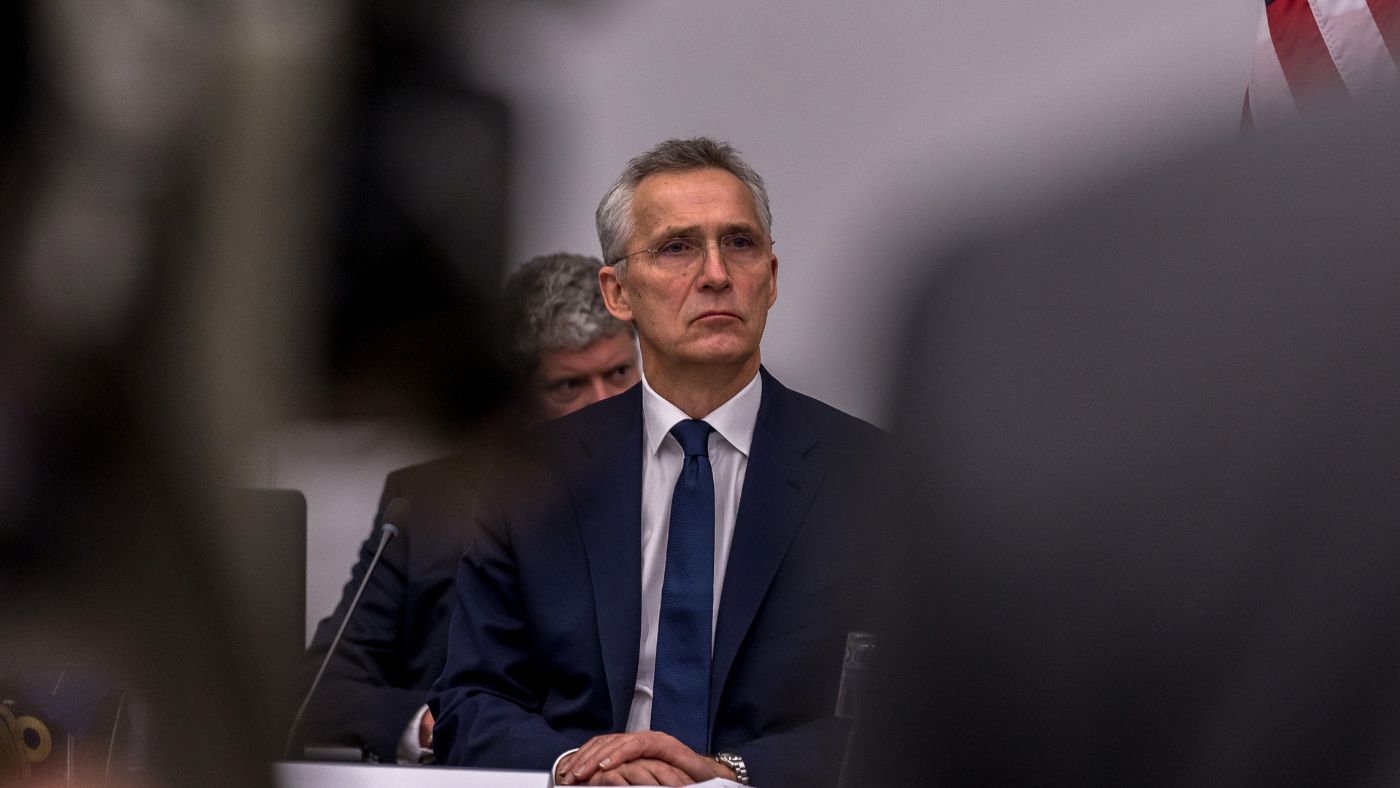The race to replace Jens Stoltenberg as Nato chief
Politicians from around the world - including former British PMs - are being touted for the role

A free daily email with the biggest news stories of the day – and the best features from TheWeek.com
You are now subscribed
Your newsletter sign-up was successful
The tenure of Nato’s secretary general, Jens Stoltenberg, is set to end this September, and rumours of possible successors are swirling.
Stoltenberg, who served as prime minister of Norway from 2000 to 2001, and again from 2005 until 2013, has held the key post for almost nine years.
He was due to step down last autumn, but was kept on as leader for an extra year following the invasion of Ukraine.
The Week
Escape your echo chamber. Get the facts behind the news, plus analysis from multiple perspectives.

Sign up for The Week's Free Newsletters
From our morning news briefing to a weekly Good News Newsletter, get the best of The Week delivered directly to your inbox.
From our morning news briefing to a weekly Good News Newsletter, get the best of The Week delivered directly to your inbox.
The post of secretary general must be selected unanimously by the 30 Nato members. However, the voices of the four most powerful economies – the US, Germany, France and the UK – “exercise inordinate influence, even if they don’t always claim the coveted position for themselves”, said Foreign Policy.
Whoever is chosen, they will be taking on the role at a crucial time. “The Russian war against Ukraine has given Nato a renewed sense of its vital role in the defence of Europe”, said The New York Times.
Who is up for the top job?
Few names have been officially thrown in the ring, but the list of rumoured contenders is long and varied.
It is custom that the US does not put its own candidate forward, because an American general traditionally takes the high-ranking role of Supreme Allied Commander Europe in the organisation.
A free daily email with the biggest news stories of the day – and the best features from TheWeek.com
However, the US does carry a lot of sway in the decision.
US officials familiar with the debate told The New York Times that Chrystia Freeland, the deputy prime minister and finance minister of Canada, is seen as a promising choice in Washington. Freeland is Canadian-Ukrainian, and has a strong stance on the conflict. She would also be the first woman to hold the job.
There is a concern, however, “that her Ukrainian grandfather, a grateful immigrant to Canada, was as a younger man involved with a Ukrainian nationalist movement that saw the Nazis as useful foils to counter the Soviets”. This could play into Russian hands.
The name of Dutch Prime Minister Mark Rutte has also been proffered as a promising option, said Politico. Asked about the speculation, however, Rutte said he wanted to “leave politics altogether and do something completely different”.
Estonia’s Prime Minister, Kaja Kallas, is “a worthy challenger” for the job, said Politico. Estonia, unlike Canada, spends at least 2% of its GDP on defence, which is a stated goal for member nations of Nato. However, Kallas “is seen as staunchly anti-Putin and has advocated against negotiating with him”, so her selection could be seen as an aggressive move.
A Baltic leader for Nato is in general viewed by some as a logical choice in the context of the Ukrainian conflict. Some Western capitals, however, would not support the move, said Politico, viewing it as “too hawkish when war is raging next door”.
Lithuanian Prime Minister Ingrida Šimonytė, Slovakia’s President Zuzana Čaputová and European Commission President Ursula von der Leyen of Germany are other names that get thrown around, a European diplomat told Politico.
Could it be someone from the UK?
The UK’s defence secretary Ben Wallace has also been tipped repeatedly for the job.
Asked last year if he would be interested in succeeding Stoltenberg, Wallace “admitted it would be ‘a nice job’ but added that he ‘loved’ his role as defence secretary”, reports the Daily Mail.
Wallace is “popular” among Tory members and has not ruled out a bid for party leader in the future, though he twice declined to run last year.
Wallace or not, this is a job “London dearly wants as another symbol of its post-Brexit engagement in the world”, said The New York Times.
Boris Johnson, as well as his predecessors Theresa May and David Cameron, has also been touted for the Nato top job.
But given his past diplomatic gaffes, “it’s hard to imagine a role that Boris Johnson would be less well suited for than that of Nato secretary general,” said The New Statesman.
Will Stoltenberg definitely step down?
Many in the diplomatic community still feel another extension of Stoltenberg’s term is one of the most likely options, said VOA News.
This weekend, though, Nato spokesperson Oana Lungescu appeared to shut down rumours: “The mandate of Secretary General Jens Stoltenberg has been extended three times and he has served for a total of almost nine years. The secretary general’s term comes to an end in October of this year and he has no intention to seek another extension of his mandate.”
The “overall feeling”, one senior Nato diplomat told Politico, is that it is “time for fresh air”.
But the allies may end up “playing it safe after all, and sticking with Stoltenberg”, the magazine reports.
-
 The environmental cost of GLP-1s
The environmental cost of GLP-1sThe explainer Producing the drugs is a dirty process
-
 Nuuk becomes ground zero for Greenland’s diplomatic straits
Nuuk becomes ground zero for Greenland’s diplomatic straitsIN THE SPOTLIGHT A flurry of new consular activity in Nuuk shows how important Greenland has become to Europeans’ anxiety about American imperialism
-
 ‘This is something that happens all too often’
‘This is something that happens all too often’Instant Opinion Opinion, comment and editorials of the day
-
 How corrupt is the UK?
How corrupt is the UK?The Explainer Decline in standards ‘risks becoming a defining feature of our political culture’ as Britain falls to lowest ever score on global index
-
 ‘The mark’s significance is psychological, if that’
‘The mark’s significance is psychological, if that’Instant Opinion Opinion, comment and editorials of the day
-
 Is the American era officially over?
Is the American era officially over?Talking Points Trump’s trade wars and Greenland push are alienating old allies
-
 Trump’s Greenland ambitions push NATO to the edge
Trump’s Greenland ambitions push NATO to the edgeTalking Points The military alliance is facing its worst-ever crisis
-
 Can Starmer continue to walk the Trump tightrope?
Can Starmer continue to walk the Trump tightrope?Today's Big Question PM condemns US tariff threat but is less confrontational than some European allies
-
 The high street: Britain’s next political battleground?
The high street: Britain’s next political battleground?In the Spotlight Mass closure of shops and influx of organised crime are fuelling voter anger, and offer an opening for Reform UK
-
 Vance’s ‘next move will reveal whether the conservative movement can move past Trump’
Vance’s ‘next move will reveal whether the conservative movement can move past Trump’Instant Opinion Opinion, comment and editorials of the day
-
 What have Trump’s Mar-a-Lago summits achieved?
What have Trump’s Mar-a-Lago summits achieved?Today’s big question Zelenskyy and Netanyahu meet the president in his Palm Beach ‘Winter White House’